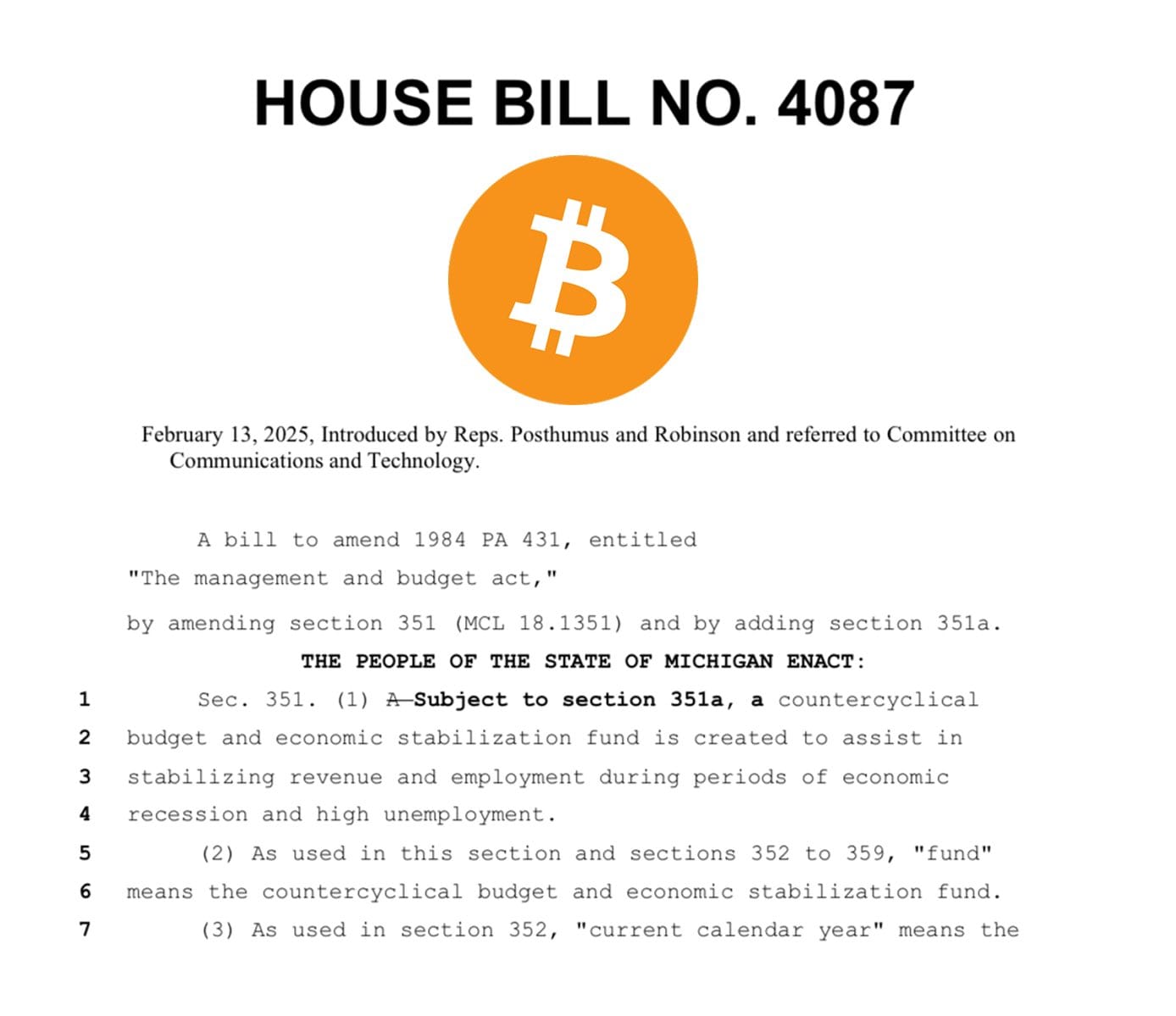Michigan Introduces Strategic Bitcoin Reserve Bill, Becoming 20th US State With Crypto Legislation
Michigan has emerged as the latest U.S. state to propose a strategic Bitcoin reserve, joining a growing list of jurisdictions exploring the inclusion of cryptocurrency in state investment portfolios. This move brings the number of states with pending crypto reserve-related bills to 20.
Michigan’s Crypto Reserve Bill
Representatives Bryan Posthumus and Ron Robinson introduced House Bill (HB) 4087, which seeks to amend the state’s Management and Budget Act to authorize a “Michigan Crypto Strategic Reserve.” If passed, the legislation would allow the state treasurer to invest in cryptocurrencies—including Bitcoin—from both the general fund and economic stabilization fund, but with a maximum allocation of 10%.
“Michigan can and should join Texas in leading on crypto policy by signing into law my bill creating the Michigan Crypto Strategic Reserve,” Rep. Posthumus stated on social media. His remarks referenced similar crypto-focused legislation introduced by Texas Senator Charles Schwertner on Feb. 12.
Key Provisions and Guidelines
- No Specific Crypto Limits: While the bill imposes a 10% investment cap, it does not specify which cryptocurrencies may be purchased for the reserve.
- Lending Option: The proposed legislation includes a provision allowing Michigan to loan out its cryptocurrency holdings, provided doing so “does not increase financial risk to the state.”
- Custody Requirements: Any crypto investments must be held directly, either through a secure custody solution or via exchange-traded products from registered investment firms.
Existing Crypto Exposure
Michigan’s state pension fund already holds stakes in Bitcoin and Ether exchange-traded funds, indicating a degree of familiarity with digital assets prior to this proposed legislation.
Potential ‘MichCoin’
In a related social media post, Rep. Posthumus floated the idea of creating a state-backed stablecoin called “MichCoin,” tied to gold and silver reserves, though no formal legislative proposal on that concept has been introduced.
Context and Other States
Michigan now joins 19 other states actively weighing crypto investments at the legislative level. Most recently, Texas and North Carolina also introduced or amended bills to permit crypto-related holdings and transactions at the state level. Meanwhile, North Dakota stands out as the only state so far to reject a proposal allowing direct crypto investments.
Should Michigan’s HB 4087 pass, it would mark a significant step in the growing trend of U.S. states seeking to integrate cryptocurrency into their official financial management and investment strategies.




